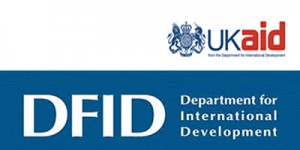 The Nigeria Civil Society Situation Room (Situation Room) has received a grant from the British Department for International Development (DFID) covering a three and a half year period beginning July 2014 on to March 2018.
The Nigeria Civil Society Situation Room (Situation Room) has received a grant from the British Department for International Development (DFID) covering a three and a half year period beginning July 2014 on to March 2018.
The grant, which will be administered by PLAC, covers a variety of activities including:
1. Regular Situation Room Strategy Meetings/Retreats to analyse and review on-going topical issues affecting elections and other socio political developments in the country.
2. Geo-Political Zonal Meetings of civil society organisations involving grassroots CSOs to be held across the six geo-political zones to build synergy and develop strategies for collaboration and activities with the Situation Room.
3. Training for Domestic Election Observers to cover a range of issues on advocacy, election observation, report writing, analysis and use of information.
4. Increasing Awareness on Election Laws and Guidelines materials by developing simplified and easily explanatory materials for easy understanding and knowledge of existing legislation on elections in Nigeria.
5. 2015 General Election Day Situation Room/Run off Elections to support the constitution and observation of the Election Day Situation Room for the 2015 general elections as well as any run-off elections, if that may arise.
6. Situation Room Review Meeting of the Observation of the 2015 General Election to review meeting of the conduct of the 2015 general elections with all stakeholders and make recommendations to INEC on lessons learnt.
7. Governorship Election Day Situation Room involving the constitution of the Election Day Situation Room and observation of the governorship elections holding between 2014 and 2018 in the following States: Osun, Anambra, Ondo, Edo, Bayelsa and Kogi States, etc.
8. Dialogue Sessions with Public Officials/Election Stakeholders to discuss governance issues and articulate civil society input into public policy and formulation.
9. National Stakeholders Meeting on Elections: to engage in dialogue on elections, voters’ awareness and increased participation in elections, on an annual basis.
10. Research and Development of Advocacy Agenda through development of occasional briefing papers, advocacy tools and other advocacy materials.
11. Promoting Issue Based Campaign with activities targeted at encouraging political parties and candidates to focus on issues covering development, transparency and accountability in government and human rights during campaigns.
12. Situation Room Messaging; Radio and Television on Situation Room mechanisms, activities and strategies and to be implemented through the use of radio jingles and television aimed at conveying advocacy information and messages.
13. Use of Social Media and Information Technology to effectively disseminate awareness on governance issues.
